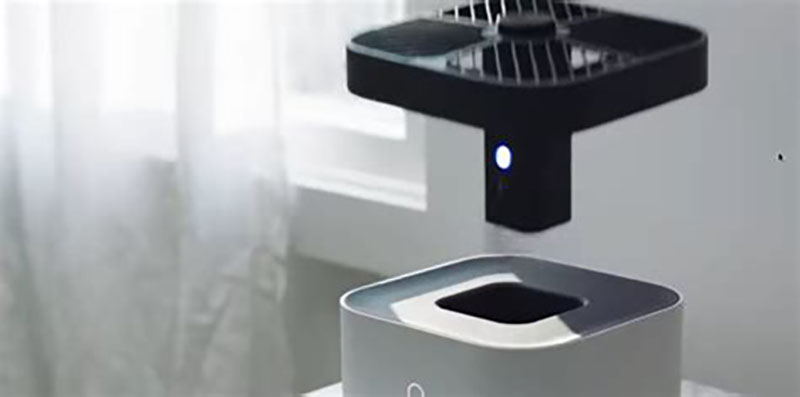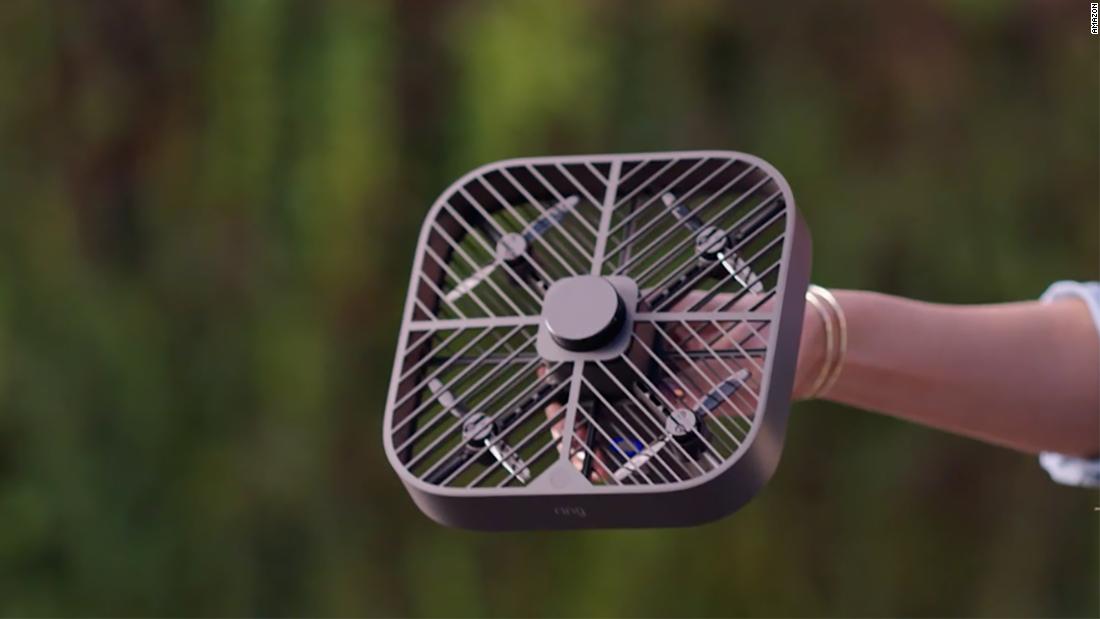Amazon’s introduction of a flying drone-mounted security camera for use inside homes has drawn criticism from civil liberties advocates, who have in the past taken the company to task over its security products.
But industry-watchers said the device was an ambitious step forward for the field of home robotics.
The Always Home Cam, from Amazon subsidiary Ring, rests in a dock when not in use, which physically blocks its camera from operating.
When activated, it flies out of the dock and around one level of a property, powered by four rotors surrounded by a protective casing.

‘Peace of mind’
The device is designed to make a loud noise when activated, so that people know when it’s in use – something that could in itself help to deter intruders, the company argues.
It can be set to launch when a home alarm is triggered, sending users a live video feed via a smartphone.
Users can also set the device to fly along preset flight paths, for instance to check whether a window has been closed or the oven was turned off.
Amazon said the device aimed to deliver “peace of mind”.
It is planned to go on sale in the US next year for $250 (£192).
“This compact, lightweight, autonomously flying indoor camera gives even greater visibility when you’re not home,” Amazon said in a statement at the device’s launch last week.

Privacy
But UK civil liberties group Big Brother Watch said the device takes Amazon a step further into people’s personal lives.
“It’s difficult to imagine why Amazon thinks anyone wants flying internet cameras linked up to a data-gathering company in the privacy of their own home,” Big Brother Watch’s Silkie Carlo told the BBC.
She said Amazon’s product development has a broader influence on communities and the surveillance market.
The Electronic Frontier Foundation has in the past criticised Amazon’s partnerships with law enforcement.
“Amazon and other companies offer a high-speed digital mechanism by which people can make snap judgments about who does, and who does not, belong in their neighborhood, and summon police to confront them,” the campaign group said in June.
Industry-watchers noted that the device marks a significant step forward in the field of home robotics.
‘Science fiction’
CCS Insight analyst Ben Wood said that even a year ago the notion of autonomous home robots seemed like “science fiction”.
“I expect it to generate a huge amount of interest from technology enthusiasts who are typically the people who embrace smart home technology first,” he commented.
Wood acknowledged that the device is likely to be “a magnet for privacy concerns”, but pointed out that Amazon has anticipated such issues with its privacy protections.
He said the Always Home Cam has some similarities to Samsung’s “Ballie” home robot, showcased at CES earlier this year.
But Samsung’s device appears to be years away, Wood said, while Amazon’s is launching in a matter of months.





